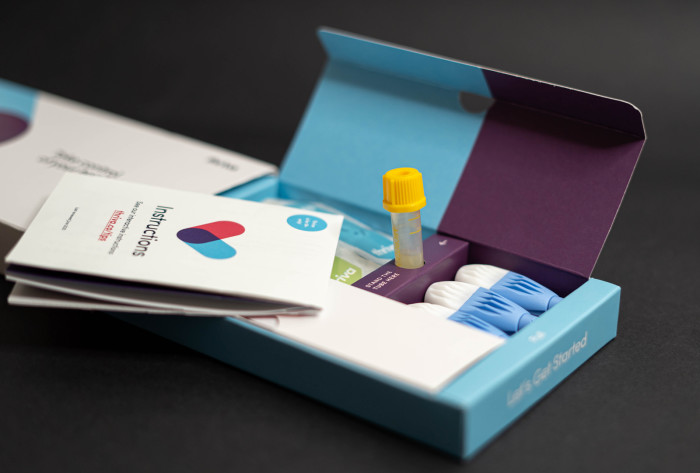Inside the ‘life extension’ market

Roula Khalaf, Editor of the FT, selects her favourite stories in this weekly newsletter.
The chutzpah of Silicon Valley’s elite is rarely in doubt, but the conceit of their most recent ambition is especially controversial. Nothing less than that holy grail of alchemy is being sought: immortality.
The thought of Messrs Thiel and Bezos living forever might send many of us running for early retirement. But while tech billionaires explore moonshot ideas such as tissue engineering, organ printing, cryonics, digital consciousness and even, chillingly, “young donors”, there are a number of products on the market already making claims to life extension. They may not align with the claims of some extension fanatics that the first person to live to 1,000 is already alive, but instead come closer to Elon Musk’s aspiration to get to a good 100 years.
“Good” is relevant here. For the truth is that while our lifespan might be increasing, our healthspan is actually decreasing. Government health data shows 20 per cent of men’s lives are now spent in poor health, and that figure is increasing. For women it’s even greater – up to 23 per cent. What’s the point in elongating life if you spend that time suffering in poor health?
This relative lack is down to a number of factors, but as Dr Paul Clayton, a clinical pharmacologist and fellow of The Institute for Food, Brain and Behaviour, points out, much can be traced to “nutrition transition”. The phrase was coined by the agricultural economist Barry Popkin in 1994, with a report that correlated a rise in modern degenerative disease with populations that had switched to an ultra-processed diet. Heart disease, cancer and diabetes seem to increase exponentially once people start eating “modern”. In so-called blue-zone geographies, where populations have an above-average lifespan, a diet of whole foods is a common denominator. That and an active (read: non-screen) lifestyle.

“Once you understand the ways modern lifestyle and diet are damaging, you can design precise antidotes,” says Clayton. Specifically, pharmaco-nutritional tools to address what he calls “the four horsemen of the nutritional apocalypse”: chronic inflammatory stress, type B malnutrition, dysbiosis (abnormality of the microbiome) and glycaemic mismatch (large amounts of glucose in the bloodstream). “By neutralising these major causes of disease, you push back the beginnings of heart disease or neurodegeneration by decades, and life expectancy starts to open up,” he says.
One company that’s sprung up with just such a pharmaco-nutritional offering is self-styled “well tech” brand Lyma, with a supplement based on ingredients that it claims are optimally dosed and from peer-reviewed clinical trials. Founder Lucy Goff says: “We’re working with proper science. Ninety per cent of the supplement industry is bunkum – meaningless doses of ingredients, often not in a form that is bioavailable.” Designed to bring down the effects of so-called “inflammageing” – or the inflammation of cells caused by stress, bad sleep and modern diet – Lyma requires you to swallow four pills a day, at £150 per month.
“That turmeric you take in your tea in the morning?” says Goff. “Forget it. You need 500mg of active curcuminoids every day for your body to feel any difference.” Fans are of the “high-performance” type, including concert pianist James Rhodes, polar explorer Inge Solheim and the CEO of SoftBank Marcelo Claure. It promises focus, calm and better sleep, and fans claim a quiet sense of capability. “I work so hard and travel so much it’s helped me keep on top of my game,” says Claure.
For those interested in taking their health into their own hands, there is Thriva. An app that tracks your propensity to disease through quarterly blood tests, Thriva is part of the vanguard shift from reactive to preventative medicine. “Helping people live longer, more meaningful lives is what I went into medicine for,” says medical director Vishal Shah. “Before, you would just go to your GP, have a blood test and they would look through five pages of results and tell you about the one thing that looked off. But we want you to see all the results, detecting pre-disease states before they manifest.”

Users can pick and mix what they test for, with options including cholesterol, diabetes, liver function, heart disease, thyroid issues and various hormone levels. The results are delivered in accessible, trend-based graphs that show your projected trajectory, and not just where you are at now. So you can see that you might be in the “safe zone” for diabetes today, but without intervention that may not be the case in 10 years’ time.
It has taken off in certain circles, with City types now comparing diabetic markers over boardroom tables. Venture Capitalist Andrew Wolfson has been using it for 2 years. “Without question, it’s helped me take control of my health through making small changes in my lifestyle. By eating slightly less meat, drinking slightly less frequently, taking slightly more exercise and drinking slightly more water my life indicators immediately improved – it was there to see, in black and white, every 3 months. It’s a really helpful tool for me. I don’t need to be superhuman, I just need to be safe.” Watching his father battle dementia for the last eight years of his life convinced Wolfson that leading an active life for as long as possible was a priority. “It’s a really helpful tool for me. I don’t need to be superhuman, I just need to be safe.”
RoseBar is a new programme that would align itself more with the superhuman than the safe. Promising that “a year from now you can be younger”, it’s a synthesis of science, spirituality and preventative measures. In partnership with biotech company Orgenesis, RoseBar offers all the standard diagnostic testing and lifestyle indicators and biohacks (longevity plasma treatments, “age-defying” nutraceuticals, pulsed electromagnetic-field therapy, stem cell manipulation), plugged into the advanced diagnostic algorithms of its biotech arm. Each member becomes part of an ongoing clinical trial that promises to pioneer our understanding of how to “de-age”. As Vered Caplan, CEO of Orgenesis, puts it, “You can get older but that doesn’t mean your cells have to age.”
Also on the team is Anna Bjurstam, who heads up the wellness programmes at luxury hospitality group Six Senses. She brings the spirituality: “Understanding your inner self and sense of purpose is key to life extension,” she reckons. The programme launches this month at Six Senses Ibiza, which is kitted out with a hyperbaric chamber, cryotherapy and IV facilities, and of course plenty of shamans to guide you on your way.
“Longevity doesn’t need to be served by doctors in white coats,” says founder Jonathan Leitersdorf of the sensual environment on offer. For €14,260 a year, subscribers get advanced longevity diagnostics, medical consultations to reveal their pace of ageing and access to all the biohacking recommendations, as well as monthly coaching calls, daily nutraceuticals and AI expertise. Ready to turn back time? According to medical director Dr Tamsin Lewis, our early 30s is the best time to enroll, as this is when your body starts ageing.

If you have long since left your 30s behind and the prospect of a 1,000-year life seems like a missed opportunity, there is Auriens. A later-life residential and lifestyle concept just opened in Chelsea, London, it has developed a programme that promises individualised wellness, with an emphasis on fitness. Designed by Kyros Project, a collective of experts that includes KX Gyms wellness director Gideon Remfry, the programmes are underscored by a deep focus on muscular science and ageing. For instance, photo-biomodulation red light has been installed into the ceiling of the exercise studio. “Residents are encouraged into lots of stuff while feeling warm,” says Remfry, who is already working on his next studio for Google’s AI department.
Each resident receives personalised diagnostic testing and then lifestyle, diet and exercise programmes that are designed to combat root cause, as opposed to symptoms. Remfry details the example of one 65-year-old with a bad shoulder injury who was unable to play tennis, despite the anti-inflammatories and painkillers prescribed by her doctor. “We tested her muscle and cells, and with deeper-level blood testing looked at hormones, inflammation and nutrient deficiencies, then built a rehab programme that included work with Andy Murray’s physiotherapist.” She’s now playing tennis four times a week, he says, “and not drinking G&Ts”.

None of these methodologies are going to get you to your millennial birthday, and perhaps that’s for the best when you consider the moral dimension – as the FT’s chief economics commentator Martin Wolf has put it: “Nobody is entitled to clutter up the planet forever.” Still, these innovations suggest the landscape of life extension is opening up, with a deeper understanding of diet and lifestyle, a shift towards preventative health and the arrival of AI-driven algorithms. “It’s about convergence,” says Remfry, “and accessibility. There’s stuff everyone can do now, especially post-pandemic. Just getting your eating and sleeping cycles back in sync with your circadian rhythm. When it gets dark, you shouldn’t be over-consuming. It sounds innocuous but our satiety hormones get massively misregulated and you are never full up. Things like eating blueberries, tracking your steps, fasting, a sleep app on your phone – these can have huge outcomes.”
So maybe we’ll leave it to Thiel and the techies to extract the stem cells of young donors and develop eternal digital consciousness. It’s a lot less complicated to cut the junk food, exercise well and monitor the bloods. Though in Ibiza, preferably, with some super-pills.

Comments